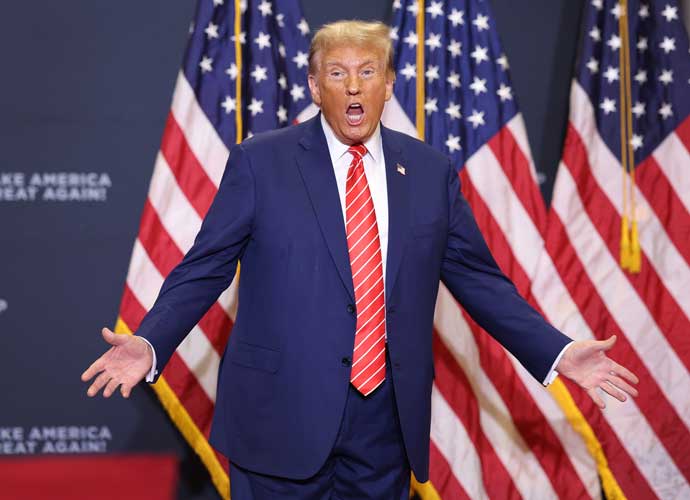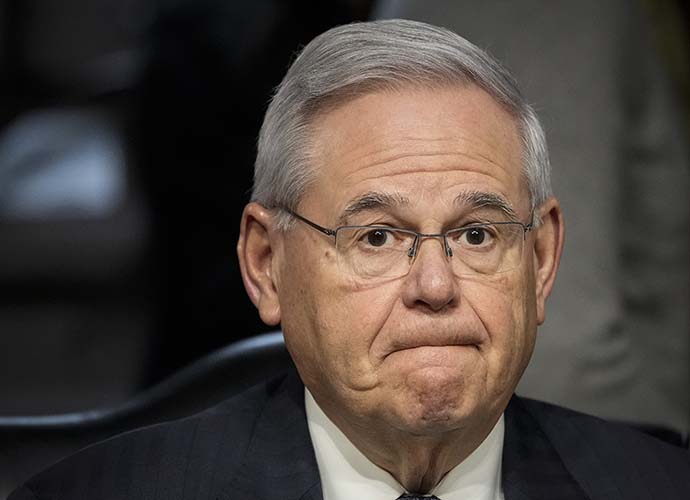After Supreme Court Rules States Can’t Remove Him From The Ballot, Trump Asks Justices To Give Him ‘Full Immunity’ From Prosecution
On Monday, the Supreme Court ruled unanimously that states could not remove Donald Trump from their ballots using the 14th Amendment’s insurrection clause.
However, the Supreme Court justices were divided about how broadly this decision would end up sweeping. A five-to-four majority wrote that no state could exclude a federal candidate from any ballot – but four justices argued that the court should have kept its opinion limited.
A five-justice majority – Chief Justice John Roberts and Justices Clarence Thomas, Samuel Alito, Neil Gorsuch and Brett Kavanaugh – wrote that states cannot remove any federal officer from the ballot, especially the president, unless Congress first passes legislation.
“We conclude that States may disqualify persons holding or attempting to hold state office. But States have no power under the Constitution to enforce Section 3 with respect to federal offices, especially the Presidency,” these justices said.
“Nothing in the Constitution delegates to the States any power to enforce Section 3 against federal officeholders and candidates,” they continued.
Four justices disagreed on the scope of the decision.
Justices Sonia Sotomayor, Elena Kagan and Ketanji Brown Jackson wrote in a separate opinion that the majority “shuts the door on other potential means of federal enforcement.”
“We cannot join an opinion that decides momentous and difficult issues unnecessarily,” the justices declared
Justice Amy Coney Barrett, writing in another opinion, said that the case “does not require us to address the complicated question whether federal legislation is the exclusive vehicle through which Section 3 can be enforced.”
Trump gloated about the decision – and immediately asked for the court to give more – “absolute immunity” from prosecution.
“I was very honored by a nine-to-nothing vote,” Trump said on the Howie Carr Show. “And this is for future presidents. This is not for me. This is for future presidents, all presidents. But this was a very big decision. It was a great decision.”
“Another thing that will be coming up very soon will be immunity for a president and not immunity for me, but for any president,” Trump added. “If a president doesn’t have full immunity, you really don’t have a president because nobody that is serving in that office will have the courage to make, in many cases, what would be the right decision or it could be the wrong decision.”
On December 19, 2023, the Colorado Supreme Court ruled that Trump was ineligible to run for president in their state because of his support for the January 6 Capitol riots.
Colorado decided this based on the four-to-three ruling that rested on interpreting the 14th Amendment.
It was the first court to side with voters and activists who filed many lawsuits against the former president, claiming that he should be barred from office due to the “insurrection clause” under the 14th Amendment.
After the ruling was made, a YouGov survey involving 3,492 respondents showed that 54% of America approved of the court’s conclusion, with 38% strong approval.
Despite this, a combined 35% either strongly or slightly disapproved. 24% of Republicans agreed with Trump’s removal from the ballot, alongside 48% of independents.
Colorado Secretary of State Jena Griswold (D) said she was disappointed by the decision.
“The Supreme Court had the opportunity in this case to exonerate Trump, and they chose not to do so,” this group mentioned. “Every court – or decision-making body – that has substantively examined the issue has determined that January 6th was an insurrection and that Donald Trump incited it. That remains true today.”
“First and foremost, I would say that it’s good that the court issued the decision,” Griswold told CNN’s Wolf Blitzer on the Situation Room. “Americans have been voting all across the nation in early voting for – in those Super Tuesday states including here in Colorado – and Coloradoans deserve to know whether Trump is a qualified candidate.”
“My larger reaction is disappointment,” she admitted. “I do believe that states should be able, under our constitution, to bar oath-breaking insurrectionists.”
The “insurrection question” has become a rallying cry for Republicans.
During a press conference last month, Trump allies Reps. Matt Gaetz (R-Florida) and Elise Stefanik (R-New York) offered a one-page resolution, claiming that Trump “did not engage in insurrection or rebellion against the United States.”
This resolution hopes to affirm “the sense of the House of Representatives” that Trump “did not engage in insurrection or rebellion against” America or help “or comfort to the enemies thereof.”
RELATED ARTICLES
Get the most-revealing celebrity conversations with the uInterview podcast!









Leave a comment